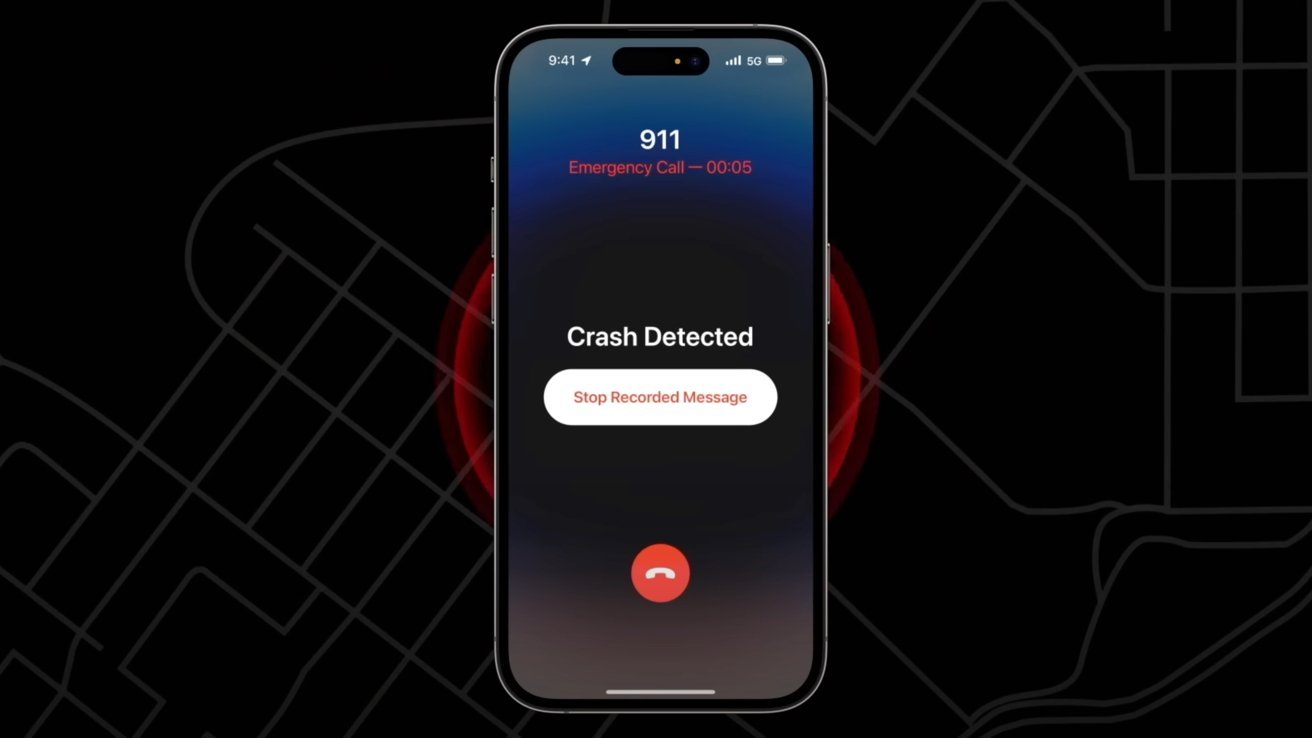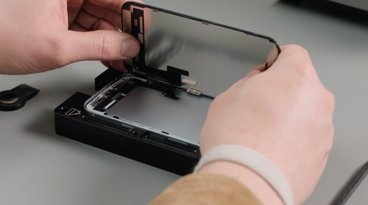Emergency services were summoned by the iPhone's Crash Detection feature to a fatal accident that saw five people injured and four horses die.
Police were notified at 1:45 am on Monday that there was a car accident near the Batman Highway at Rowella, Tasmania. A white Ford Ranger left the highway and hit a tree stump, rolling the attached horse trailer.
Five vehicle occupants aged from 14 to 20 were taken to Launceston General Hospital for treatment, with one 18-year-old passenger moved by air ambulance to Melbourne having suffered serious injuries, reports ABC. Members of the Yoles Harness Racing Stables team were involved in the accident.
Two of the four horses in the rolled trailer died immediately after the crash, according to police, with the other two euthanized at the scene.
Emergency services arrived within just eight minutes of the crash taking place, with the fast response down to a combination of police happening to be in the area, and an alert from an iPhone 14. The Crash Detection feature notified police of an impact, informing them of where to go.
On the Crash Detection feature itself, Tasmania Police Inspector Ruth Orr offered that in a "case where people had lost consciousness in a crash like this, it is certainly something that alerts police quickly." Inspector Orr advised drivers to be more careful on Tasmanian roads, with injuries and crashes already "significantly higher than last year."
Police are urging anyone who saw the vehicle and trailer before the crash took place to get in contact.
Apple's emergency notification feature has undergone a lot of bad press since launch, with false positives occurring for skiiers and rollercoaster riders, but it has proven itself useful in getting aid. In one case in December, a man was notified of his wife's nearby car crash, enabling him to help at the scene before paramedics arrived.
 Malcolm Owen
Malcolm Owen


 Oliver Haslam
Oliver Haslam
 Thomas Sibilly
Thomas Sibilly
 Marko Zivkovic
Marko Zivkovic

 Wesley Hilliard
Wesley Hilliard

 Andrew Orr
Andrew Orr



-m.jpg)






3 Comments
These stories are important because they remind us how valuable this feature is.
Back in the 1970’s the FAA mandated Emergency Locater Transmitters on light aircraft. They are an armoured, battery powered, impact activated transmitter that would let rescuers find an aircraft that had crashed. There was much gnashing of teeth over this requirement, and a lot of stories about accidental triggering leading to false alarms that wasted people’s time. For a couple of years that was pretty much all we heard around the airport. But over time people got used to handling them in the right way. They got used to having them onboard. And yes the manufacturers learned how to tweak the switch design to reduce false activations. Now everyone agrees that they are a very good thing that saves lives.
I expect the Crash Detection feature on iPhones will follow the same trajectory. In a couple of years it will be normal to have this and no one will worry about the infrequent false alarms, just as they don’t worry about the occasional false alarms from smoke detectors, or burglar alarms, or ELTs. .
One life saved is worth the falsing and growing pains.